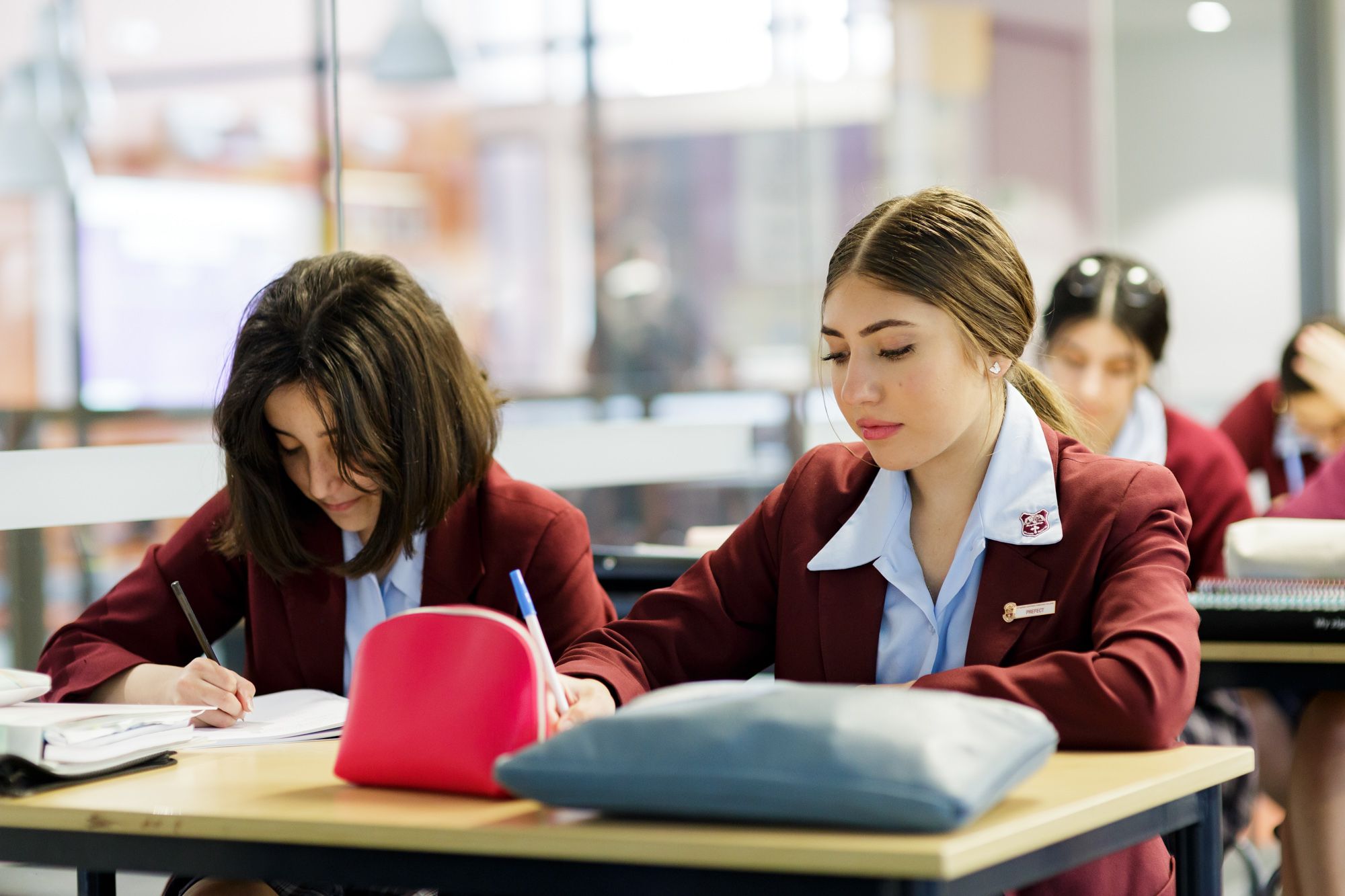
KEY LEARNING AREAS (KLA)
English
English is taught with a focus on the relationships between language and meaning. Meaning is shaped through the processes of responding to and composing texts. Activities include speaking and listening, reading and writing, and viewing and representing. Students learn about language and literature through working with a wide range of print, spoken, visual, media, multimedia and digital texts.
Students’ skills, knowledge and understanding are developed through:
· responding to texts across the required range of texts.
· composing texts across the variety of types and contexts described in the content.
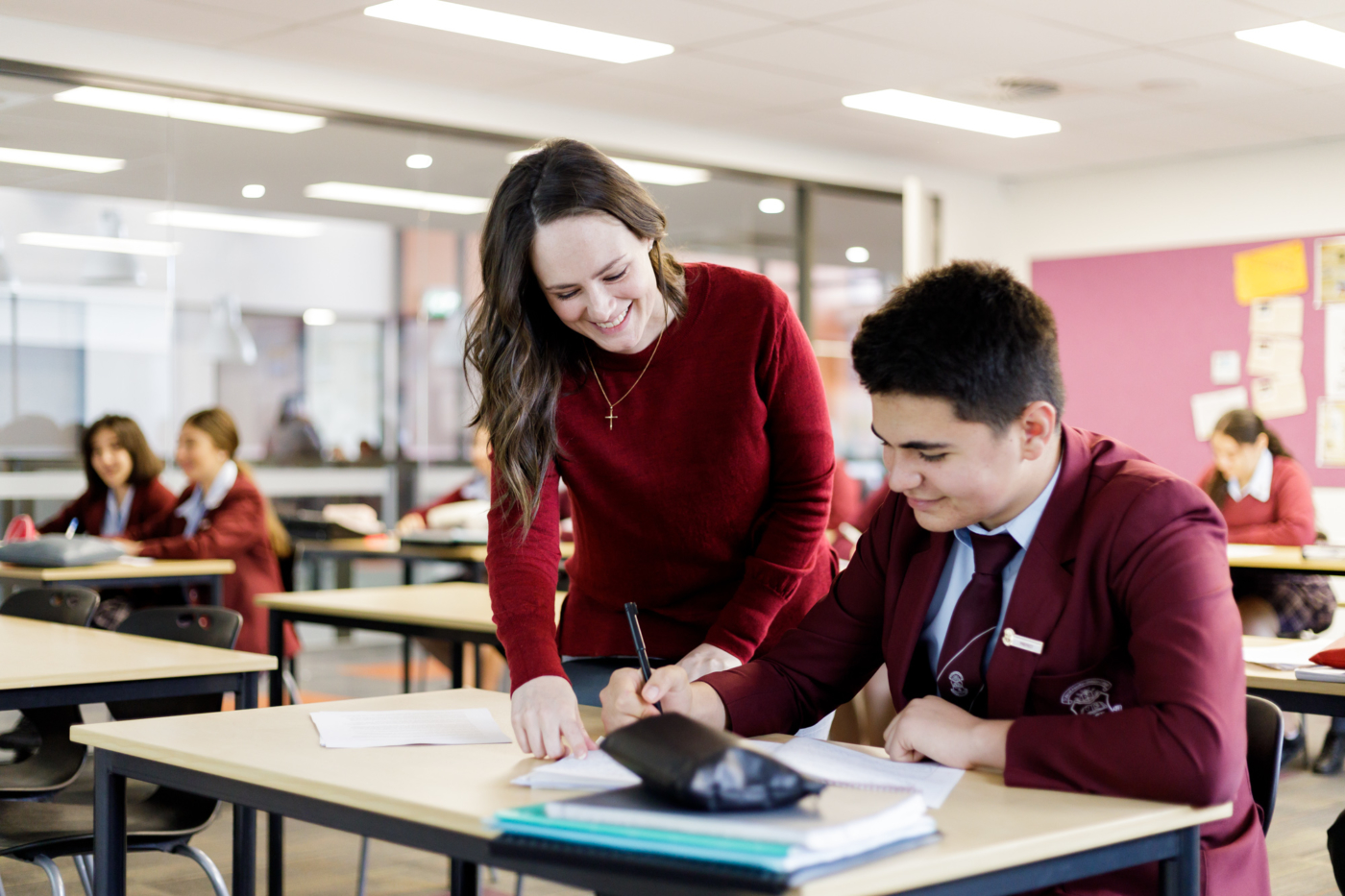
The content of lessons takes account of students’ developmental growth as their views of the world broaden from the personal to the public.
Students read, listen to and view a variety of texts that are appropriate to their needs, interests and abilities. There is a focus on literacy to enable students to become confident communicators. Their language skills are developed encouraging them to become imaginative thinkers and lifelong learners.
Mathematics
Mathematics provides students with knowledge, skills and understanding in Number and Algebra, Measurement and Geometry, and Statistics and Probability. It focuses on developing refined mathematical understanding, fluency, communication, logical reasoning, analytical thought and problem- solving skills. A focus on numeracy provides students with the skills and understanding to be applied in everyday situations.
Students that show progress and excel in their current mathematics course, may be invited to be a part of the accelerated mathematics program giving them the opportunity to complete their HSC Mathematics course while still completing the Preliminary Coursework in all other subjects. Mathematics Extension 1 and Mathematics Extension 2 Courses are also offered for the HSC.
Students are supported with their learning and given the opportunity to strengthen their foundation in the subject through tailored programs and individualised support. A strong emphasis is placed on building their foundational skills in both Mathematics and Numeracy.
Science
Through the study of Science students learn about our biological, chemical, geological, physical and technological world. Students begin to look closely at the history of science, the nature and practice of science, applications and uses of science, implications for society and the environment, current issues, research and development. They will develop skills in planning investigations, conducting investigations, communicating information and understanding, developing scientific thinking and problem-solving techniques and working as individuals and in teams.
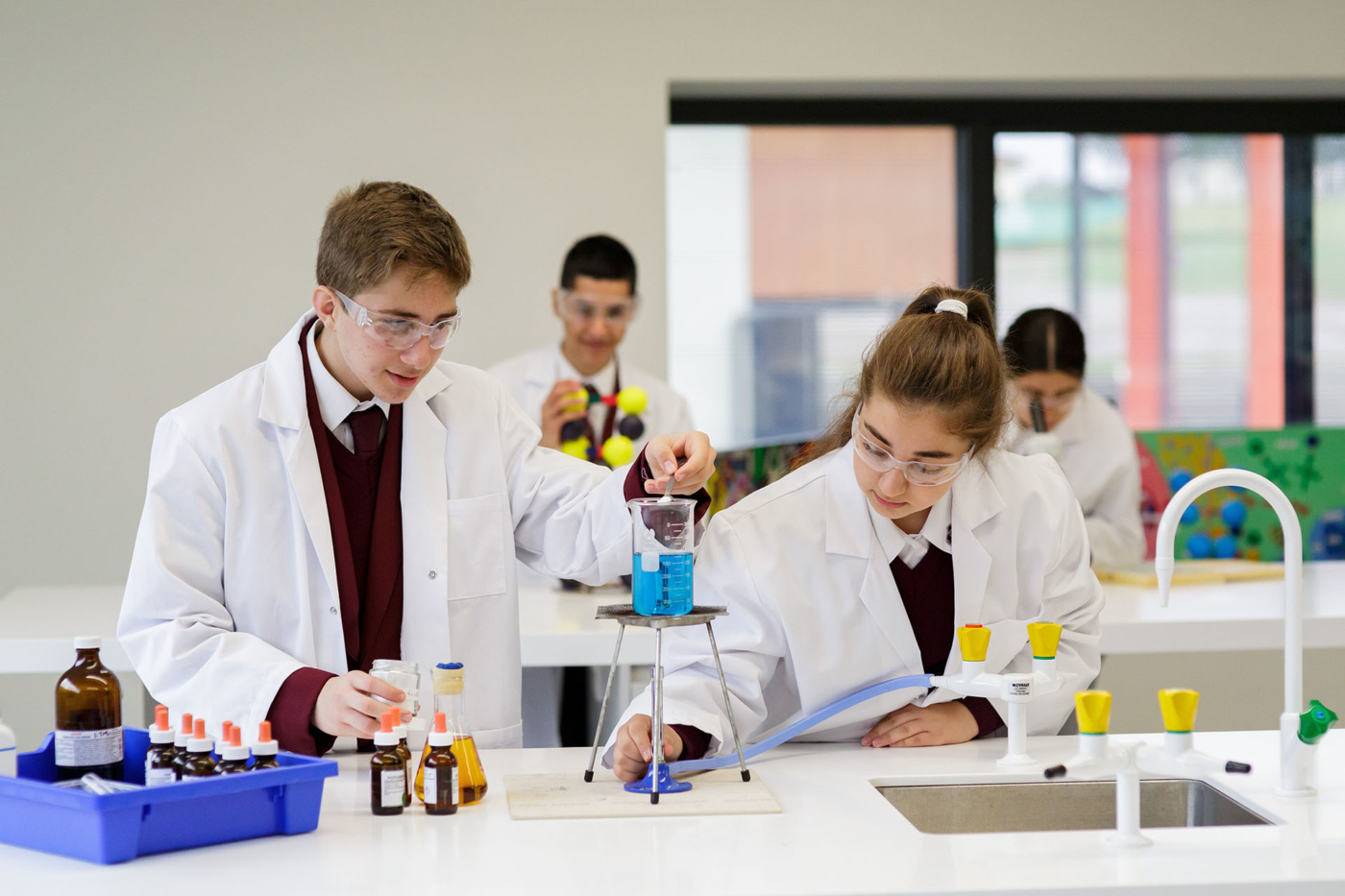
At St Narsai, we have state of the art Science Laboratories equipped with the latest technology and open spaces, allowing for collaborative and interactive experiences. These facilities, both practically and academically, provide students an opportunity to experience future university studies. Three senior labs, designated to Biology, Chemistry and Physics, support a student-centred approach to learning that fosters collaboration, avoiding the traditional lecture class format. Students learn Science best by ‘doing’ Science and St. Narsai drives this forward with experiments and practical applications offered regularly. This not only allows students to develop strong independent analytical skills, but also gives them a deeper insight into both the scientific method and the processes responsible for modern-day technologies.
Technology and Applied Sciences (TAS)
All general classrooms are equipped with state of the art technological facilities to allow for teaching and learning to encompass ICT strategies to develop students technical skills.
Through the study of technology courses, students engage in a diverse range of practical experiences and develop knowledge and understanding of contemporary and advancing technologies. The TAS department encompasses a variety of Technological areas and state of the art facilities including Food Technology, Textiles, Metal, Timber, Robotics and Computer laboratories.
Students develop an appreciation of the contribution of technologies on their lives now and the impact of innovations for creating preferred futures. They develop an appreciation of the dynamic nature of design and production processes and how thinking skills are used to develop solutions to personal, social and global issues.
Human Society in its environment (HSIE)
History and Geography are studied as mandatory subjects in Years 7-10. Students from Years 9-12 can elect to study other humanities subjects that interest them ranging from Commerce, Economics and Business Studies to Society and Culture, Legal Studies and Studies of Religion. The HSIE subjects develop students’ knowledge and understanding of local, national, and international issues and equip them with the skills to perform as active and informed citizens.
Students participate in extra curricular and skills-based activities including Geography and History Weeks and Commerce and Business Weeks which involve students setting up their own businesses that they have collaboratively worked on throughout the course of the unit.
Excursions to places of educational significance also take place such as the Nicholson Museum located at Sydney University, anaylsing ancient artifacts from Egypt, Greece and Babylon.
The College also offers VET Subjects including Retail Services and Business Services, allowing students to graduate with a TAFE accredited certificate at the end of their studies. VET courses also enable students to partake in work experience, enhancing their skills required in real world situations that will thoroughly benefit them in the future.
Christian Studies
Christian Studies at St. Narsai Assyrian Christian College focuses primarily with the Good News of Jesus Christ and the development of the Christian faith. It aims at teaching Christian doctrines in correspondence with the practices of the Holy Apostolic Catholic Assyrian Church of the East.
The Christian Studies curriculum is designed to cover an extensive and broad range of fundamental Christian concepts to be taught in an engaging and an age-appropriate way. The sources of Christian Studies are the expression of God’s revelation in scripture, tradition, liturgy and life.
The overall aim of Christian Studies is to develop students who are interested and motivated to learn more about God, His Ways and Teachings. Through this, students will be able to live out the College’s spiritual motto ‘In Him We Grow’ and be able to have their own personal walk with God- a journey of faith created through an accumulation of knowledge, commitment and most importantly, devotion.
Assyrian language
The Assyrian language is studied in Years 7-10 for its national, cultural and religious values. Teaching Assyrian also aims to encourage our young generation of learners to take pride in learning their language, history and culture through equipping them with the necessary language skills.
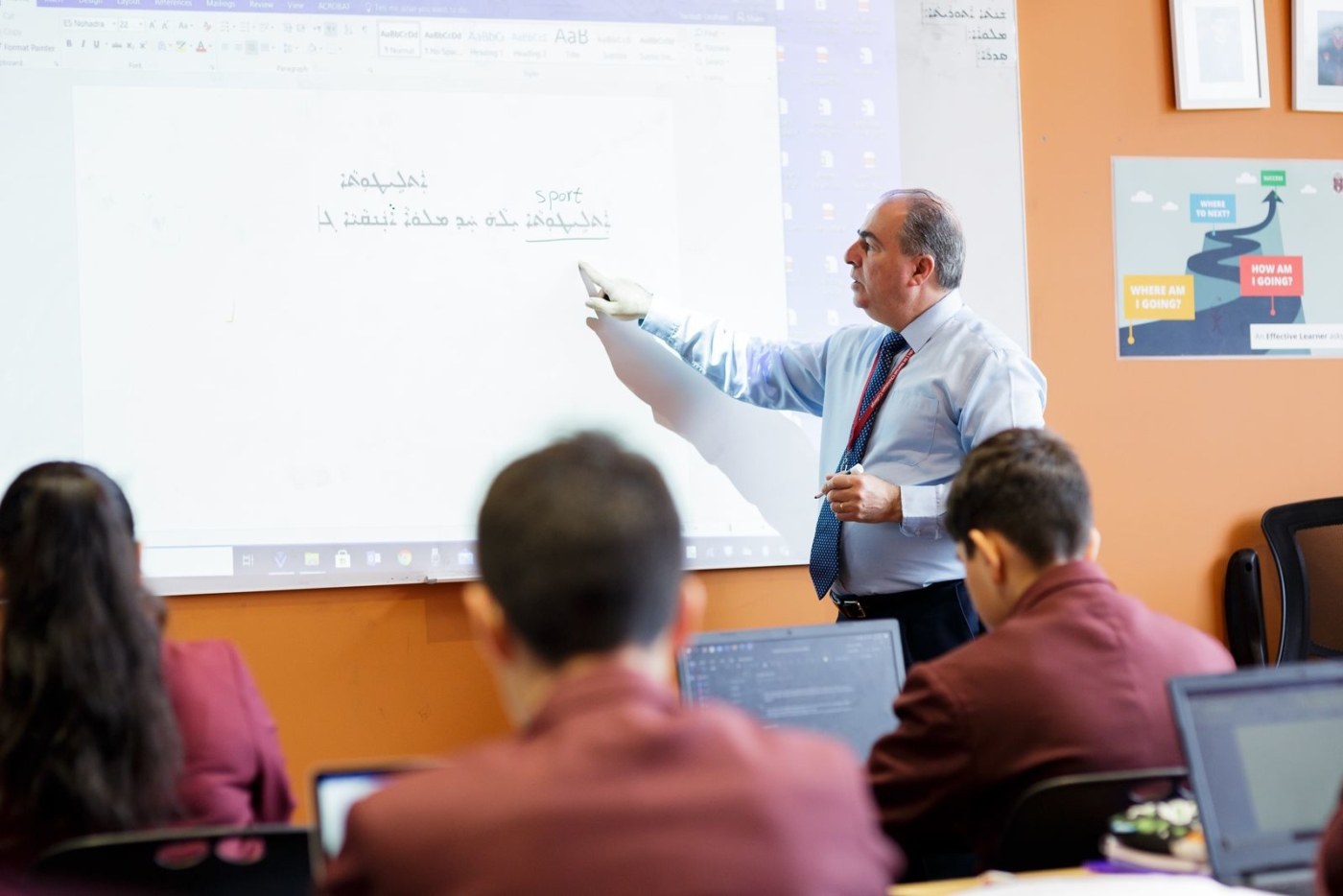
Students participate in cultural and community activities such as Assyrian New Year. Practical lessons such as cooking traditional Assyrian foods and Assyrian dance classes, ensures that the Assyrian customs and traditions are taught and maintained for future generations.
Creative and Performing Arts (CAPA)
Creative Arts works can be defined by purposeful, creative, interpretations of limitless concepts or ideas in order to communicate something to another person.
In Creative Arts, students discover a variety of art forms through a study of Drama, Music, Visual Arts and Visual Design and Photography.
Studying the Creative Arts, students learn to appreciate, compose, listen, make and perform. Each art form has its own unique knowledge and skills, elements or concepts as well as a capacity to inspire and enrich lives. The arts enable students to develop their creative and expressive capacities by learning about the different practices, disciplines and traditions that have shaped the expression of culture locally, nationally and globally.
Music and Visual Arts is studied as a mandatory core subject in Years 7 and 8.
Drama, Music, Photography and Digital Media and Visual Arts can be studied as an elective course from Years 9 & 10.
Students can further develop their knowledge and skills from Stage 4 and 5 and study Music 1, Drama, and Visual Arts in Stage 6 HSC courses.
The Creative and Performing Arts (CAPA) department at St Narsai Assyrian Christian College offer student diverse and challenging opportunities with state of the art facilities. Students have the opportunity to participate in extracurricular activities such as Vocal Group, Band, Drama and the College Choir.
Personal Development, Health and Physical Education
PDHPE is one of the six Key Learning Areas and is directly concerned with supporting the development of the student as a whole person. PDHPE is studied as a core subject in Years 7-10, offered as an elective in years 9-10 (PASS) and as an elective subject in Years 11-12.
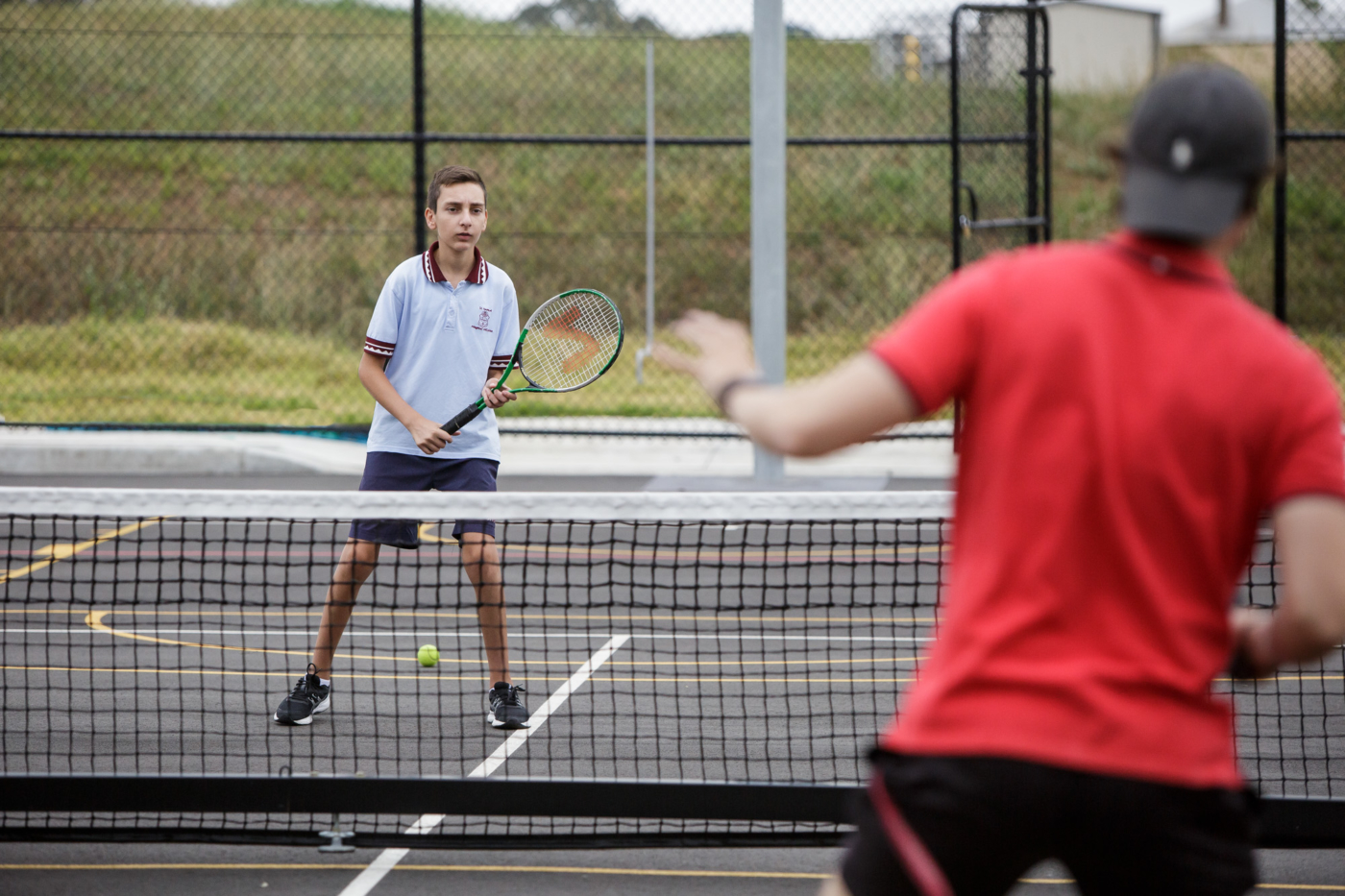
Students are provided with opportunities to explore issues that are likely to impact on the health, safety and wellbeing of themselves and others – now and in the future. Students also participate in challenging and enjoyable physical activity, improving their capacity to move with skill and confidence. Facilities for students include multi-purpose basketball, futsal, tennis and netball courts as well as a full sized soccer pitch and multipurpose grassed ovals.
Through PDHPE classes we hope to assist the students in better understanding the issues surrounding adolescence whilst fostering strong coping and resilience skills, thus preparing students to enter adult life as healthy and strong individuals.
